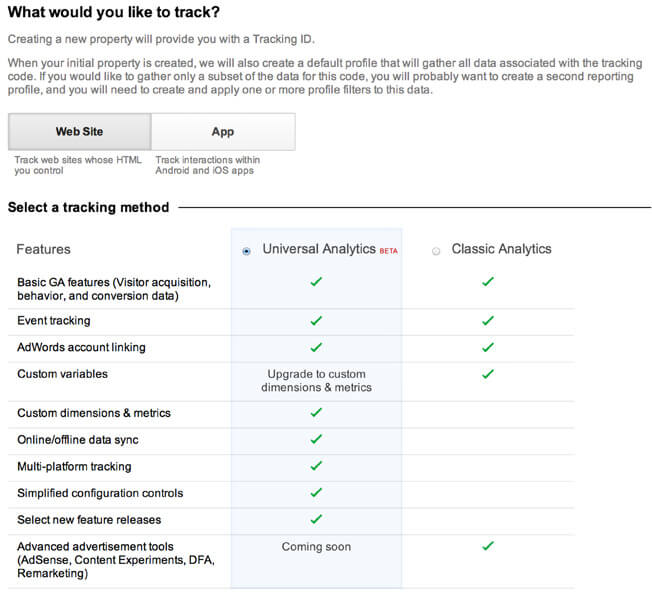Everything is born to change, albeit fleetingly, but it changes. This is an argument that can be adapted to any field, especially when it comes to software. Continually we are led to discover new updates and new options that “try” to make our lives easier but often do just the opposite.
“That’s how it is, if you like” I would say; as soon as you get used to it with a research tool, there it is, changing and throwing everyone into chaos, at least at first.
In recent days, news has spread about the new upgrade of Analytics, Universal Analytics, which allows new Collection methods, processing and reporting tools. We keep well in mind that when theupgrade will be fully integrated as a new operating standard, the classic Analytics-with the switch from ga.js to analytics.js protocol-can be considered “trashed.”
However, at first it is possible to use them in parallel through a completion of both systems without the risk of losing data or changing account settings.
Let’s try to answer a few questions to clear our minds.
Google Analytics and Universal Analytics: the transition
What to do to switch from one to the other?
Three simple steps:
- Creation of a new Web Property;
- Transfer of ownership to Universal Analytics’ data processing technology;
- Implementation of the new Universal Analytics tracking code.
After that, it will take about 24 to 48 hours to finish the entire transfer procedure, while the time for code implementation depends on the development environment and data collection and reporting needs.
There are bound to be those among us who want to break ranks and not carry out the Universal update, but they would be really wrong. Although it is not so exciting to have to constantly change one’s methods, it is an absolutely necessary step.
The first step, i.e., transfer of ownership, will be performed automatically, but will stop on the second step, continuing to send data with Google Analytics with a collection method that is no longer accepted and working. The data would not be processed and would be lost.
Once the upgrade process is completed, what will be the benefits?
- More flexible data collection methods that allow any digital device to be monitored
Universal Analytics introduces new methods of data collection so that the application can be tailored to meet specific needs by tracking data across multiple devices and platforms-the JavaScript analytics.js library for websites, the mobile SDKs v2.x. and above for Android and iOS. All new collection methods are developer-friendly, so you can implement and customize the monitoring code more easily. - Use simplified and more accessible configuration options
There will be more configuration options in the Google Analytics account, so you will not have to edit the tracking code and make changes. - Create custom dimensions to collect data
Custom dimensions and metrics are powerful tools to use to segment data-such as product details, levels in games or content page authors-unlike in Analytics. - Stay current with new features and upgrades
This will make it easier to understand the performance of a mobile app.
Moral of the story? With Universal Analytics we can focus the analysis on the visitor himself and not just the visit, allowing us to:
- Tracking navigation paths and web interaction patterns;
- Segment the results by call sign;
- Recognize him when he uses multiple devices.
To date we do not know precisely whether there are complexities rather than difficulties in learning and developing the new protocol, the only thing that is certain are the many differences that move Universal away from classic Analytics. The latter lacks most of the features listed above by imprinting its structure on a handful of options shared by the new upgrade.
We can say with certainty,then, that Universal is only integrating and expanding to enable web agencies to study more data; the “obligatory” transition is not so dramatic.
